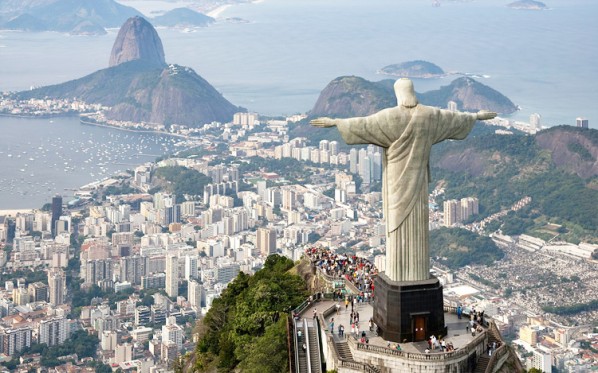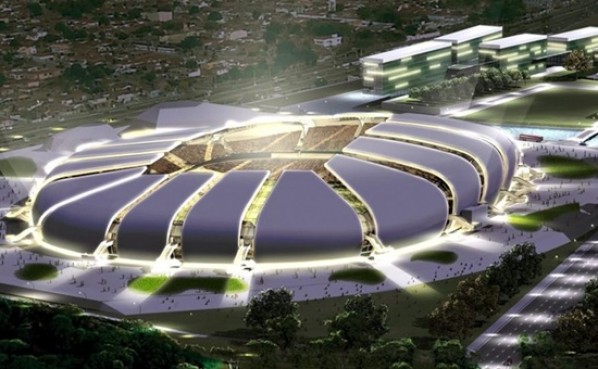Breaking Travel News Interview: Embratur chairman, Flávio Dino
Breaking Travel News: First or all, congratulations on your appointment to the role of chairman with the Brazilian Tourist Board (Embratur) Mr Flávio Dino.
What unique characteristics do you hope to bring to role?
Flávio Dino: I hope to bring fresh ideas to help continue the great work at Embratur and with my political experience an understanding of how different government agencies can work together at this important moment in Brazil’s history.
I am hugely honoured to accept this role.
BTN: Accepting the position earlier this month you talked of attracting 10.5 million tourists to Brazil annually by 2020, while subsequently trebling foreign exchange revenue.
Could you outline some of the proposals in place to achieve these goals?
FD: Brazil’s federal government plans a total investment of 33 Billion reais before the World Cup, which is allocated to several areas including infrastructure, hotels, public transport, airports, public safety and professional training in the tourism sector, among other areas.
Although this investment is designed to accommodate the needs of hosting the World Cup in 2014, Embratur expects that with this initial investment other sectors in tourism will develop in the post-event period.
We are also working hard to capitalise on the expected growth due to hosting the World Cup and the Olympics.
The focus of the world will be on Brazil over the next few years and this is a perfect opportunity to highlight what is on offer to tourists.
For example we will be focusing on the twelve host cities of the World Cup and promoting each venue and the immediate area around it.
We are aware of how vast Brazil is so hope that this strategy will allow tourists to make the most of their trip.

Rio de Janeiro will host the Olympic Games in 2016
BTN: Concerns have again been raised in the international press recently suggesting Brazil will not be ready in time for the 2014 World Cup.
Can you give us an update on the preparations for the competition?
FD: Currently the Brazilian government is in the third stage of planning for the World Cup which includes investments in aviation, port and airport development and public transport within the twelve host cities.
More than BR$5.5 billion is being invested in airports that serve the twelve host cities which again will leave an important legacy for both Brazilians and tourists after the Games have finished.
The government has also invested heavily in hotels. Through the Brazilian Development Bank (BNDES) there is a credit line of about BR$2 billion to be used for renovation and expansion of Brazilian hotels.
I believe that Brazil is making good progress in preparing for hosting the World Cup. There is a timeline and matrix that the Brazilian government is working to and this shows that the works will be ready on time and that the 2014 FIFA World Cup will be a success.
BTN: South Africa was able to transform its image during the previous competition, illustrating the power of sports tourism in the international market.
How do you hope Brazil will benefit from staging the FIFA World Cup?
FD: Hosting the FIFA World Cup means that audiences worldwide will better understand what Brazil has to offer.
People often associate Brazil with the iconic sights of Rio de Janeiro but with 12 cities hosting the Games, we have a chance to reveal the diversity of our country, showing a range of destinations from the Amazonian city of Manaus to the modern capital of Brasilia.
The legacy of the FIFA World Cup will stay with Brazil for years to come.
The investments made in infrastructure and tourism will not only benefit visitors for many years but also Brazilians.
It’s been 36 years since the World Cup was last played in South America, and maybe we’ll have to wait another 36 years for that to happen again.
Therefore, we must seize the opportunity given to us by the 2014 FIFA World Cup to leave a legacy for all of Latin America

A total of 12 Brazilian cities will host the 2014 FIFA World Cup
BTN: Brazil has also been awarded the 2016 Olympic Games.
Do you feel this unprecedented duo of events reflects the emergence of Brazil, and perhaps South America more generally, on the world stage?
FD:This is a golden decade for Brazil and we are all so excited to let the world experience the country we all know and love.
Brazil has been developing for many years but by being given the chance to host such large scale world events we can prove to the world that Brazil and South America have arrived as world players.
Embratur is continually working to attract new international events to Brazil. As a result of this work we’ve achieved good results. The country currently holds the 9th place in the ICCA world ranking in hosting international events.
BTN: Has there been any contact with officials in London – hosts of the 2012 Olympic Games – for advice on how to prepare for the event?
FD: Embratur has been working closely with VisitBritain and signed an agreement in 2010 to share key learnings from the Olympics.
The agreement was signed to boost the entry of foreign visitors and foreign exchange in both countries.
BTN: World Travel Market recently announced it would focus on sports tourism in 2011, while WSDE Sports Destination Expo will take place in Bangkok in September.
Do you see the roll of sports tourism growing to match that of other sectors, including MICE travel?
FD: With this level of investment Embratur clearly understands the impact and strength of the sports tourism sector.
With both the Olympics and World Cup Brazil will see a marked growth in sports tourism, and it will also provide a clear example of the capabilities of Brazil in hosting large scale international events.
It is true to say MICE tourism has grown in the past decade and Embratur expects this growth to continue as the sector benefits from the investments made in preparation for both the World Cup and Olympics.
BTN: How do you expect the creation of LATAM Airlines Group – merging LAN Airlines with TAM Airlines of Brazil – will impact on business and leisure travel in the country?
FD: “This is an initiative from the market that we follow with interest, in view of the increased connectivity between South America and the rest of the world.”
BTN: Finally, do you feel Air Passenger Duty in the UK and other punitive ‘taxes on tourism’ are detrimental to the sector in Brazil?
Rises in APD in the UK have placed a burden on long haul travel in general but we are still seeing a real appetite for travel to Brazil – particularly among British holiday makers.
For example, in May British Airways increased the number of flights from London to Rio de Janeiro from three per week to six per week to meet an increase in demand in travel from the UK.

